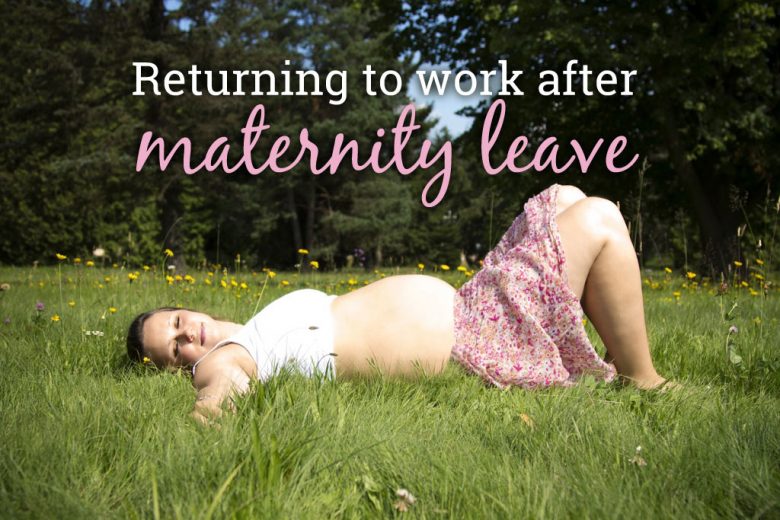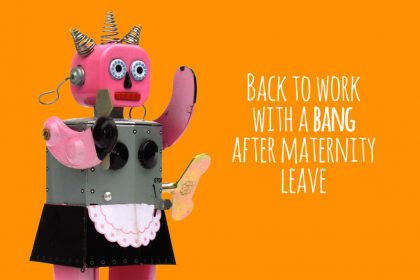Your legal rights when you return to work after maternity leave
Returning to work after maternity leave can be a difficult and uncertain time, particularly if you’ve just given birth to your first child and are unsure of your rights.
To help you understand what to expect and where you stand, solicitor Melissa Cook explains your legal position when you return to work from maternity leave.
Your key rights when returning to work
To start, let’s have a look at your key rights when returning to work. You have the right to:
- Return to the same job (or a suitable alternative role).
- Request flexible working.
- Protection from dismissal, detriment or discrimination by reason of pregnancy or maternity.
Now let’s see what each of these rights really mean, and what can you do if you don’t think your employer is abiding by them.
Your right to return to the same job
Maternity leave is broken down into a number of components:
- Compulsory maternity leave – the first two weeks of maternity leave which your employer must legally insist that you take (this rises to four weeks if you work in a factory).
- Ordinary maternity leave – the first 26 of your maternity leave.
- Additional maternity leave – an extra 26 weeks after ordinary maternity leave ends.
Your rights on return from maternity leave will, to a very small degree, depend on the type of maternity leave you take.
If you take compulsory or ordinary maternity leave
If you have taken compulsory or ordinary maternity leave only, or if you decide to return to work before the end of ordinary maternity leave, then you have the right to return to the same job you left.
This means your employer must let you go back to the same job that you were employed in before you left to take maternity leave. Your employer must also let you return on the same terms that you enjoyed before you started your maternity leave. This means that you can expect to return to the same job, on the same salary, holiday entitlement, sick pay etc that you left.
If you take additional maternity leave
If you take additional maternity leave, in general you will be entitled to return to work to the same job with the same terms and conditions as if you had not been absent. However, if it’s not reasonably practicable for your employer to allow you to return to the same job on the same terms, then they have more flexibility.
If you’ve taken additional maternity leave (or a period of at least four week’s parental leave on top of ordinary maternity leave) then you may return to a different job which is both suitable for you and appropriate in the circumstances.
If this is the case, then the terms and conditions offered to you must not be less favourable than they would have been if you had not been absent. Your employer should not, for example, offer you a job with half the salary you were previously receiving.
An example of when your employer might be justified in offering you a suitable alternative job is if there had been a restructure during your maternity leave. However, if your employer is simply intending to keep on the temporary worker they employed to cover your maternity leave, the courts have indicated that this would not be sufficient reason to justify your employer offering you alternative employment.
What if you’re not offered a suitable job?
If you’re not allowed to return to the same job on the same terms after ordinary maternity leave, or if you are not offered suitable alternative employment after on your return from additional maternity leave, then you may have a claim for discrimination by reason of pregnancy and maternity, and a claim for unfair dismissal if you are dismissed.
If you’re not dismissed but are simply not allowed to return to the same job, then you would have a claim for unlawful detriment.
If you are offered an alternative role that’s not the same as your original role when you return from ordinary maternity leave, or if you are offered a job that is not a suitable alternative when your return from additional maternity leave, then you have a number of options. You could either :
- Refuse to accept the job and resign, and you may be entitled to bring a claim for constructive dismissal.
- Accept the job and bring a claim for unlawful detriment and / or sex discrimination if the change in terms is due to your pregnancy or maternity leave.
If you’re bringing a claim for constructive dismissal then you must do so within three months less one day of the date of termination. Compensation for constructive dismissal is calculated on loss of earnings.
To bring a claim for discrimination you must do so within three months less one day of the last act of discrimination. Compensation in discrimination claims is calculated in accordance with injury to feelings. (You can read more about compensation and what you may be entitled to, further down.)
Your right to request flexible working
Like many mums, you may find that you need or want to alter your working arrangements when you return from maternity leave. You may want to spend more time with your child and so need part-time hours, or it might be that you need to work different hours to help with childcare arrangements or costs.
There are a number of different types of flexible working arrangements, including:
- Part-time hours.
- Home-working.
- Job-sharing.
- Compressed hours.
If your child is under the age of 17 (or, if your child is disabled, 18) you have the right to request flexible working arrangements from your employer. Your employer must properly consider your request and follow a statutory procedure when considering it.
What happens if your employer refuses your request
Your employer can only refuse your flexible working request on certain grounds, such as:
- It would mean extra costs which would damage the business.
- The business wouldn’t be able to meet customer demands.
- Your work couldn’t be reorganised among other staff.
- People can’t be recruited to do the work.
- Your new flexible working pattern would have an effect on quality and performance.
- There is a lack of work to do during your proposed working times.
- The business is planning to change or restructure the workforce.
If your employer does refuse your flexible working request you can appeal their decision. If you still don’t get anywhere you may be able to bring a claim in the employment tribunal if:
- Your employer has failed to follow the proper procedure.
- The reason that they gave for refusing your request was not one of the permitted grounds.
- Your employer’s decision was based on incorrect facts.
If you do bring a claim and the employment tribunal finds in your favour, the tribunal can order your employer to reconsider your application and award compensation of up to eight weeks’ pay. The employment tribunal cannot order your employer to grant your request, only to reconsider it.
Your right to protection from dismissal, detriment or discrimination
It may seem obvious, but your employer must not dismiss you simply because you are pregnant or on maternity leave. You must also not be discriminated against or suffer detriment for these reasons.
If your employer dismisses you because you are pregnant or on maternity leave, you may have a claim for unfair dismissal. You will only have three months less one day from the date of your dismissal to bring a claim, so it’s a good idea to start the process straight away if this happens. You may be able to recover loss of earnings and compensation for injury to feelings if you are successful.
If your employer or your colleagues discriminate against you or subject you to detriment because you’re pregnant or on maternity leave, again you may be able to pursue a claim in the employment tribunal. However, this would probably be a different type of claim which would entitle you to compensation for injury to feelings if you are successful.
How is ‘injury to feelings’ calculated?
Injury to feelings is calculated in accordance with the seriousness of the acts of discrimination that have taken place:
- Minor acts – generally more minor, one-off acts fall within the lower band, which is currently set at £500-£6,000.
- Serious acts – serious acts of discrimination that don’t merit the higher band would fall within the middle band of £6,000-£18,000 This includes job loss or a campaign of slightly less serious discrimination.
- Really serious acts – really serious discrimination such as a prolonged course or campaign of harassment would most likely fall into the higher band, which is £18,000-£30,000.
Get professional help if you need it
If you think you’re being discriminated against, or that your employer is not acknowledging your rights on return to work after maternity leave, you may want to ask for help.
A legal professional will listen to you talk about your circumstances, and help you by advising you as to what you can do to resolve your situation.
Melissa helps employees with their employment law queries – you can find out more and get help here.










